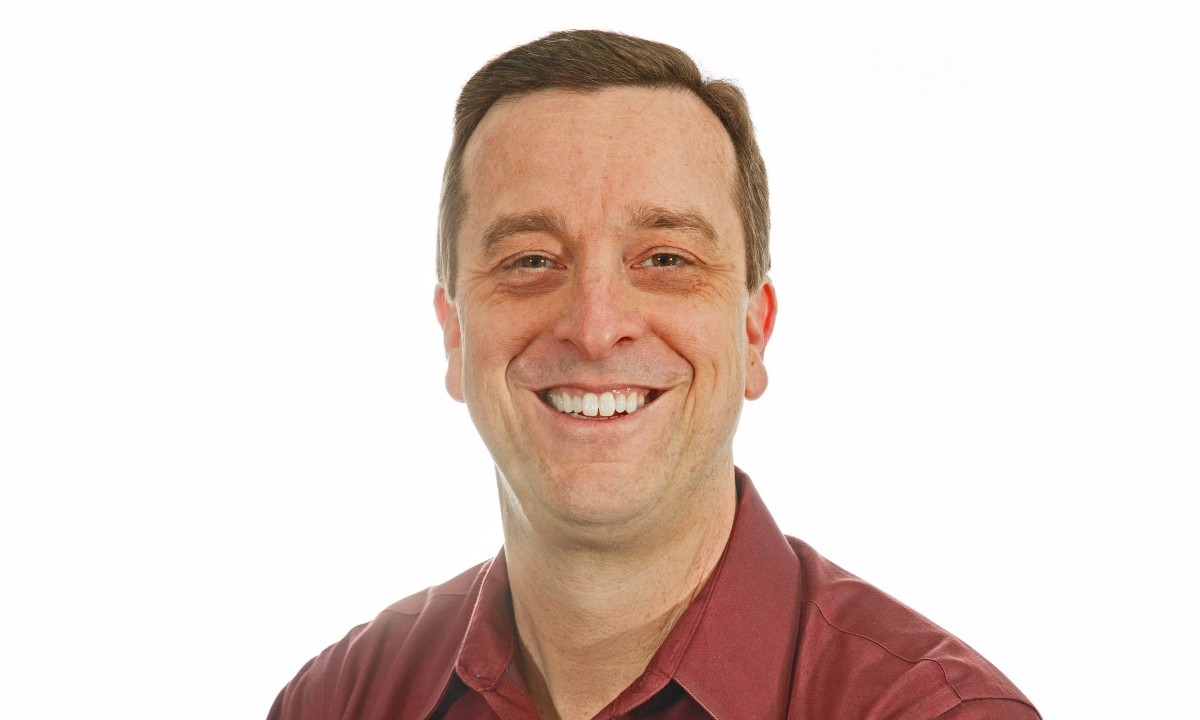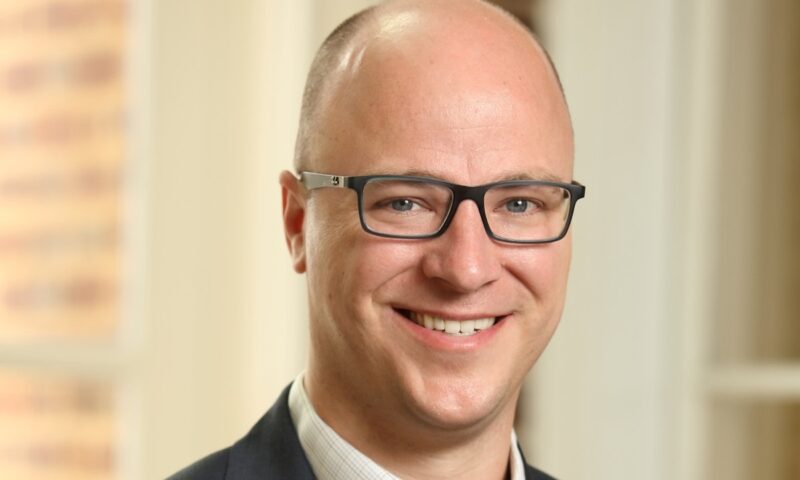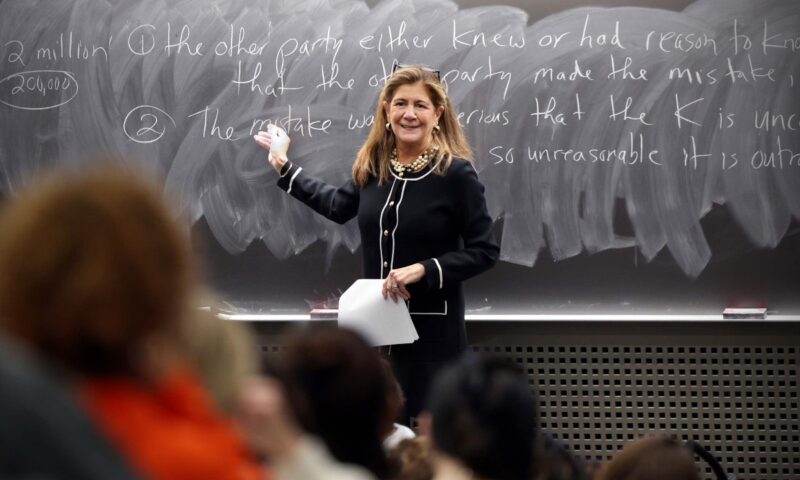Sometimes life can take you places when you least expect it. And to places you don’t expect too. In Professor David Costanza’s experience, that actually happened twice, bringing him to UVA both as a fresh-faced undergrad and as a veteran educator and renowned expert in industrial-organizational psychology.
Costanza’s connection to academia was almost predetermined; his mother was a teacher, and his father was a professor at Ohio State. It got him interested in a career education, but he knew he wanted to learn elsewhere. He chose to apply to Penn State and UVA.
“I got admitted to Penn State and got waitlisted at Virginia,” he explains, pointing out that during that summer he had already paid his deposit, completed orientation, got his dorm room assignment, took all his entry tests—and even had a date lined up for the first week of school.
Then he discovered he was off the waitlist and admitted to UVA. A friend convinced him to look into it. They took a road trip that quickly changed Costanza’s mind.
“I walked from Hospital Drive near McIntire up the steps onto the Lawn, looked right, saw the Rotunda, and said, ‘Oh, I’m coming here.’” He wrote two letters, one to request his $50 deposit back from Penn State and another to the young lady he was supposed to meet, apologizing for canceling. He was relocating to Grounds.
Initially, Costanza considered pursuing a business major, and started with Microeconomics at the College. “I lasted about two weeks and decided that it wasn’t what I wanted to do,” he remembers. But because of a fortuitous meeting with Professor Ray Bice during orientation, Bice admitted him to one of his classes, which paved the way for a lifelong fascination with psychology.
“He signed me into his Psych 101 class,” Costanza recalls, crediting that chance connection with Bice and entry into his class as pivotal for introducing him to the subject. He also notes that the I-O (Industrial/Organizational) Psychology course he took with Professor Jean Smith, who became his adviser, would also be greatly influential.
She directed him to McIntire, where he took courses in organizational behavior, human resources management, and a conflict resolution and negotiation course taught by Professor Gib Akin.
“I was really impacted by Ray Bice, Jean Smith, and Gib Akin,” he says. “They made me aware of something that I knew I liked, and they put a name and an identity to it.”
When all was said and done as an undergrad and it came time to walk the Lawn, Costanza decided he wasn’t quite ready for graduate school, and decided to join the workforce.
Academic Transition and Professional Evolution
Venturing into the corporate world, Costanza secured a position with Continental Telephone, the company that would later become Verizon. He took on a management training program, which provided him with invaluable real-world experience. He spent 18 months getting into the nitty-gritty of telecommunications.
“I did every job. I spliced cable, installed telephones, dug ditches, worked on fiber optics, and worked in the office,” he says. “I basically learned the telephone business.”
Spending a few years climbing the corporate ladder in management, he was simultaneously earning his master’s in I-O Psychology at George Mason University. Despite the potential long-term career in the telecommunications industry, the consolidation of companies following a series of mergers marked a turning point. Costanza decided to go back to George Mason to complete its PhD program.
His academic journey then took a significant turn post-PhD, when he secured a teaching position at George Washington University (GW). Over the course of 29 years, he taught, yes, but he also pioneered an interdisciplinary major in Organizational Sciences. His ability to innovate was reflected in courses that challenged conventional teaching styles, a trait recognized by his peers, “for innovation and teaching undergraduate introductory courses,” he shares, underscoring his ability to engage large classes in an interactive way. He was also recognized by the Society for Industrial and Organizational Psychology (SIOP) with its Distinguished teaching contributions award.
The Return to UVA
After nearly three decades at GW, a confluence of professional evolution and a sense of nostalgia drew Costanza back to Grounds.
Seeking a new role that more closely aligned with his passion for teaching, Professor David Lehman’s invitation to interview for a UVA position proved serendipitous. “I thought about it for about three seconds and said yes. And here I am,” he says with a palpable sense of contentment.
In talking with him, his current appointment at McIntire sounds not unlike the culmination of his years of dedication and experience teaching and researching. Costanza says that teaching COMM 1800 (Foundations of Commerce) is very similar to a course he developed for the major he designed at GW. What particularly excites him is the scale of the class and the challenge of connecting with large groups, aspirations he once had as a student himself.
“I’ve loved teaching the course,” he confesses. “I know I’m a bit of an odd duck when it comes to a class like this, because most professors if asked ‘Hey, you want to teach 600 first-years a broad-based intro course?’ would run screaming from it. And I’m like, ‘That’s me,’” he says, smiling as he notes that he began with four sections of 160 students each.
He explains that when he’s teaching, he encourages questions—both welcoming them from students and asking them. “It’s never just me talking at them. I try to make a connection that way. I hope that the way I teach and the way I present myself make me accessible.”
Research Contributions and Generational Theories
Costanza’s impact extends beyond teaching, with his research on generations challenging conventional narratives across academia. He believes it’s what he is most known for in his work. A consulting partnership with the U.S. Army that he has had since 2001 sparked an inquiry into generational differences when he was asked about the retention of millennials and the reasons why they quit military service at a higher rate than others.
What began as a casual interest morphed into a mission: to dispel myths surrounding generational stereotypes.
“My purpose in studying generations was to get rid of it—to try to kill the idea. There is no statistical generational effect,” he asserts, a conclusion fortified by his extensive studies and that he discussed in an article for Slate. His work has shifted dialogues in academic and practical circles alike, pushing organizations to look beyond “generational” thinking and explanations, as he discussed in a recent podcast on the “The Danger of Generational Labeling.”
“The more I got into it, the more I realized that the underlying concept is wrong. There is, in fact, no empirical evidence that demonstrates or suggests that there are distinct generations. There’s no evidence that shows what are known as generational differences or generational effects; there are alternate explanations for almost everything we think is generational that make much more sense,” Costanza says, referencing a 2024 piece published in the Journal of Organizational Behavior that revisited his 2012 study. “The generations aren’t a thing anymore. Even the Pew foundation, which is one of the big proponents of this, released a statement basically admitting that they were wrong about generations and that they’re going to be much more careful when talking about them.”
Future Endeavors
Even with a lessened research expectation at UVA, Costanza continues to delve into projects he finds inherently fascinating. He’s currently collaborating with students on the concept of potential, seeking to quantify what often remains a nebulous trait. “We have all the data collected, and it’s been analyzed. We just need to write it up and get it out there,” he remarks enthusiastically, signaling his enduring commitment to exploring new frontiers of knowledge.
His academic adventure at UVA, much like his return to Grounds, is powered by a love for teaching and curiosity—both traits that were kindled in his early years at the University. They say you can’t go home again, but clearly, you can go to UVA again, and Costanza has returned to his intellectual roots.
“I fell in love with it here as an undergrad: with the architecture, with the history, and with everything about the place in addition to the education. And then like a high school sweetheart, 30 years later, we’re reunited,” he says. “Every day when I am walking home, I always make a point to cut across one of the central paths on the Lawn so I can look left and right. It really is kind of a surreal experience to be back at a place so impactful that I love so much.”



